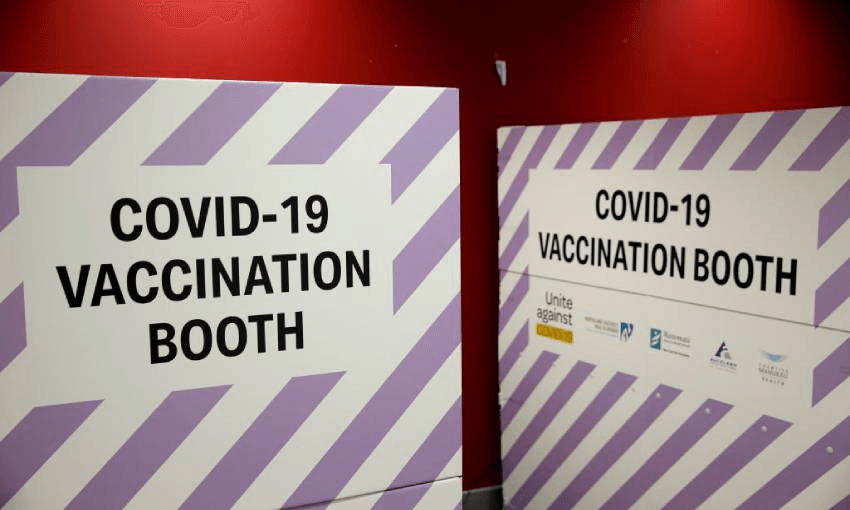Photo ID is currently required for vaccination in Auckland, contrary to advice issued by the Ministry of Health.
This week I received an appointment for my first Covid-19 vaccine, as I live with an MIQ worker. In the email confirmation, I was instructed to bring photo identification to the appointment, and also told that I could use the email for free public transport to and from the appointment.
In an email from the Northern Regional Health Coordination Centre (NRHCC), I was told to bring “a form of photo identification (e.g. staff card, driver’s license, passport, 18+ card)”. I was also advised “you will be asked to show your ID and booking confirmation (this message) when you arrive at the vaccination site”.
Both the Ministry of Health and Unite Against Covid-19 subsequently posted on social media that photo ID is not required. “You shouldn’t need photo ID for a Covid-19 vaccination,” was the message from the Ministry of Health. Unite Against Covid-19 posted: “Please note that Photo ID is not required to receive a vaccine.”
Kia ora, no – you shouldn't need photo ID for a COVID-19 vaccination. Hope this helps :)
— Ministry of Health – Manatū Hauora (@minhealthnz) March 24, 2021
Kia ora Cathryn, this is not an initiative that we are aware of, but may be something that your local DHB or public transport provider is offering as encouragement. As an aside, please note that photo ID is not required to receive a vaccine.
— Unite against COVID-19 (@covid19nz) March 25, 2021
Last night, a ministry spokesperson confirmed to the Spinoff that photo ID requirements are not required by the ministry, but may be required by the DHBs responsible for vaccine rollouts in their regions.
“The ministry doesn’t require DHBs to seek photo ID as part of identification for vaccinations, but district health boards have flexibility to choose to do so as part of ensuring their vaccine rollout is appropriate to their specific regional delivery models,” said the spokesperson.
“This is a new immunisation programme for all DHBs and lessons will be learned about what approaches work best as the rollout progresses.”
NRHCC, the organisation responsible for vaccine rollout in Auckland, responded by clarifying that photo ID has been required during initial stages of the rollout but might not be later.
“We have asked for photographic identification because often people were coming to the vaccination sites at very short notice. This was in the instances where there was left over vaccines which needed to be used before expiry,” said a spokesperson. “We have reached out to frontline health workers when this has happened to ask if they can come at short notice to ensure the vaccine is used. The photo ID was an additional way of proving the right people were getting the vaccine at the right time.”
They added: “We do understand that, for some people, showing photo ID can be uncomfortable so we will be reviewing this process as we move into the next phases of the vaccinations rollout. We apologise if anyone has been made to feel uncomfortable because of this requirement, that was certainly not our intention as we want this process to be as easy and comfortable for everyone as possible.”
The first group to be vaccinated consists of border and MIQ workers and members of their household. This includes people in papakāinga and other shared communal living arrangements. In total, this group consists of roughly 50,000 people.
This month group two – high-risk frontline workers and people living in high-risk places numbering around 480,000 – were scheduled to begin their vaccinations.
On the question of free public transport to and from the vaccine appointment, Unite Against Covid-19 said this was “not an initiative that we are aware of, but may be something that your local DHB or public transport provider is offering as encouragement”.
An Auckland Transport spokesperson confirmed to the Spinoff that there is indeed free public transport to and from vaccine appointments in Auckland. They told The Spinoff it was an initiative from the Ministry of Health. However, it currently only applies to the first group getting the vaccine, which limits it to the household members of MIQ and border control employees.
